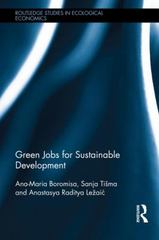Answered step by step
Verified Expert Solution
Question
1 Approved Answer
Can you help me? Economics - or, political economy - is a discipline of contested [social] scientific inquiry.[True|False] The focus, entry point or unit of
Can you help me?
- Economics - or, political economy - is a discipline of contested [social] scientific inquiry.[True|False]
- The focus, entry point or unit of analysis for Neoclassical and Austrian Economics is the individual.[True|False]
- "Capitalism" and "the economy" are the same thing and are, moreover, a permanent and natural state of affairs.[True|False]
- Definitions of economics, political economy, and social provisioning are, in essence, the same, all reducing to and espousing free markets and scarcity.[True|False]
- Macroeconomic analysis generally focuses on factors determining aggregate movements in output (GDP), employment (N), and the price level (inflation).[True|False]
- In a monetary production economy such as capitalism it is use values (usability), serviceability, sustainability and social welfare that are of primary concern.[True|False ]
- Economic pluralism refers to crossing disciplinary boundaries - e.g., incorporating insights from sociology, psychology, anthropology, ecology, political science, history, etc. into economic analysis.[True|False]
- A primary focus or entry point for the Marxist school of economics is not an isolated individual but class analysis or class struggle - e.g., "The history of hitherto existing society is the history of class struggles."[True|False]
- Gross Domestic Product (GDP) is the most referred to and reliable economic indicator in large part because it explicitly includes non-market activities, quality of life metrics, working conditions, domestic care work and environmental conditions.[True|False]
- One fact agreed upon by all economic historians is that the United States developed solely by free trade, free markets and non-protectionist foreign trade and economic policies.[True|False]
- Counter-cyclical macroeconomic policies - also known as Keynesian policies - include expanding government spending during economic upturns and reducing them during downturns.[True|False]
- In today's advanced capitalist economies the role of the government and/or the government as an economic actor is entirely unimportant as unregulated free markets coordinate society.[True|False]
- Neoliberalism can roughly be defined as: a political philosophy and economic ideology which looks to organize and mediate social relationships through markets - e.g., via privatization, deregulation - as markets are thought to be less a social institution than a force of nature.[True|False]
- Broadly speaking, heterodox economics focuses more on the virtues of market exchange and the orthodox or mainstream approach looks more at production, including the social relations of production.[True|False]
- Gross Domestic Product (GDP) can be determined by the expenditures of each component of GDP, namely: consumption, investment, government spending, and exports minus imports.[True|False]
Step by Step Solution
There are 3 Steps involved in it
Step: 1

Get Instant Access to Expert-Tailored Solutions
See step-by-step solutions with expert insights and AI powered tools for academic success
Step: 2

Step: 3

Ace Your Homework with AI
Get the answers you need in no time with our AI-driven, step-by-step assistance
Get Started


